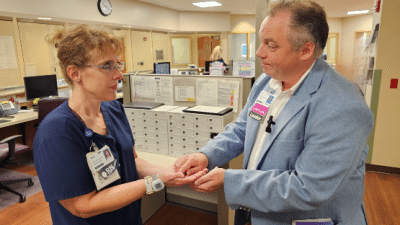
One man moved to Franklin County from Texas to run his successful multimillion-dollar business from Smith Mountain Lake. Now, he may have to move because he can’t get broadband access. He could be a successful entrepreneur in the community, but we may lose him and his business from the Fifth District.
A young couple shared concerns about their son’s grades at school suffering because he cannot do research and homework from their house. The library closes too early for his parents to take him after work, and he is falling behind his classmates who do have broadband in the home, not to mention relative to those students in Northern Virginia whom he will compete against for college admissions.
A consultant for a software company based in Wisconsin wanted to live in Campbell County and continue his consulting work from his home. His company made a special arrangement for him to move, but when he arrived and found he couldn’t get broadband access in his home, he was forced to rent additional office space in Altavista to run his business and may not be able to sustain that situation.
Another woman even said that a broadband line actually runs through her yard, but yet, she still can’t get access to service. Others talked about the trouble they have filing for unemployment or looking for new jobs without broadband.
All these stories reflect a fundamental problem with our infrastructure. When broadband emerged, the “spines” of the network reached areas with high population densities. Further out in rural areas, the infrastructure cost per customer increases, making the “last-mile” connections prohibitively expensive for private companies to invest in. The free-market can take care of cities and suburbs, but small towns and rural communities will require a public-private partnership similar to rural electrification efforts. There is $7.2 billion included in the Recovery Act for rural broadband funding that local governments will soon be able to apply for. If the government can build the infrastructure (like towers, fiber cable, and antennas), private companies could then be enticed to provide the broadband service.
We lose competitive advantage in Southside every day that we fall behind on broadband access. It’s becoming just as critical as telephone lines and interstates for our businesses, our students, and our seniors. I look forward to being a partner with our local governments to find ways to increase rural broadband access because that’s what our working families need and deserve.
Please feel free to contact me to share your concerns and ideas. You may call 888.4.TOM4US (888.486.6487); write to 1520 Longworth House Office Building, Washington, D.C. 20515; or visit www.perriello.house.gov to sign up for my weekly e-newsletter.
Tom Perriello represents the Fifth District in the United States House of Representatives.










